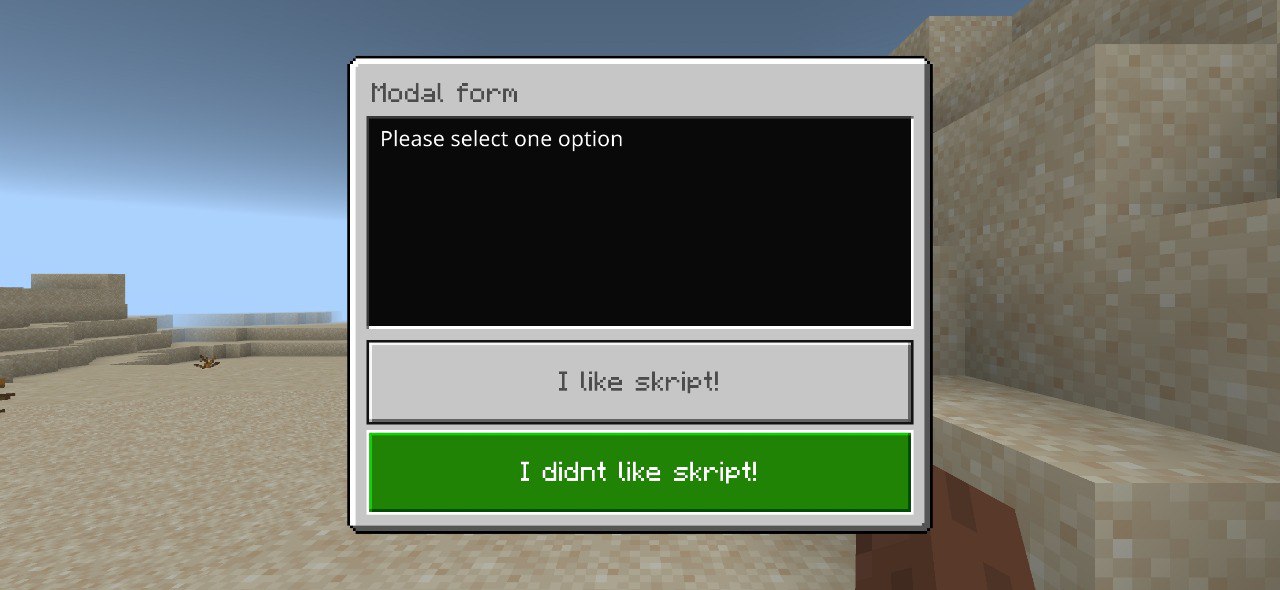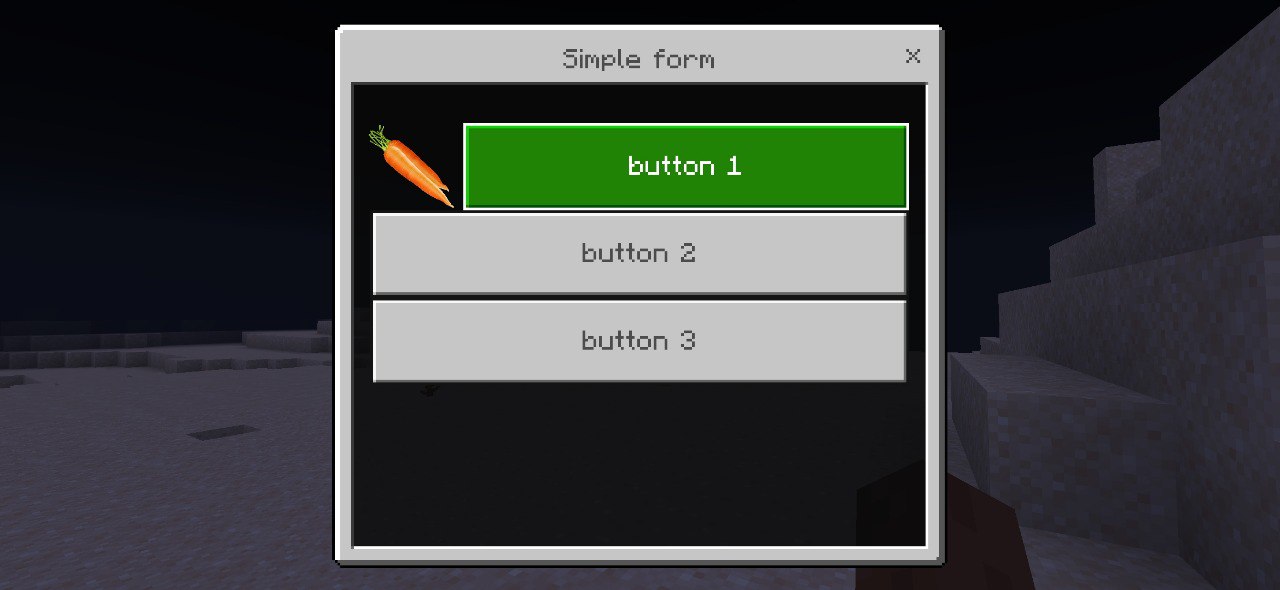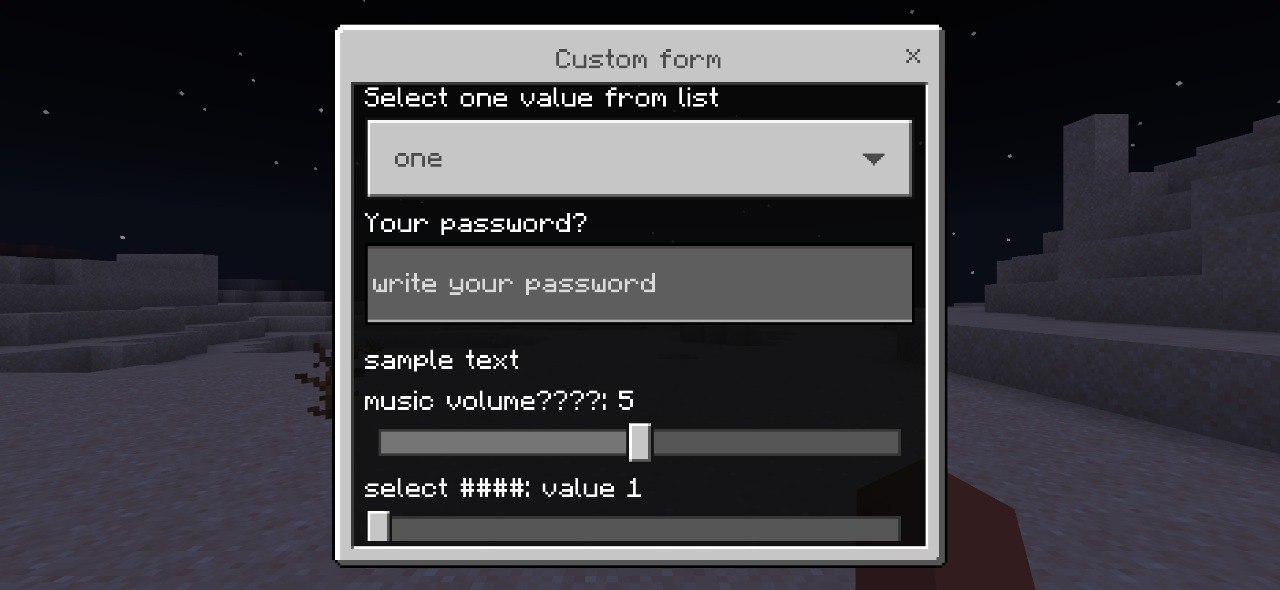The button is a section, the code inside of which will be executed when you click on it. After clicking on the button, the form will be automatically closed (a feature of Bedrock forms).
form(-| )button ((with (name|title))|named) %string% [with image %string%]
Allows you to specify or get a text description in Modal form. Allows you to specify both in an already created form and in the
creation section Modal form
Get the value of the Custom form Elements after closing, it is possible only in the section run on form result.
Creates an element in which the user can enter any text. Allows you to specify the initial text inside the field, and the placeholder text
form(-| )input (with name|named) [%string% (with|and) [placeholder] %string%[(, | (with|and) ) [def[ault] [value]] %string%]]
Choosing from the list
Creates an element in which the user can select one of the suggested values. Allows you to specify the initial value by index.
form(-| )drop[(-| )]down (with name|named) %string% (with|and) [elements] %strings%[(, | (with|and) ) [def[ault] [(element [index]|index)]] %number%]
Label, note, text
Creates an element with text.
form(-| )label [(with (name|title)|named)] %string%
A slider with a numeric value selection
Creates an element in the form of a strip with a control in which the user can specify a value. Allows you to specify the minimum and maximum threshold of numbers, the initial value and the slider step.
form(-| )slider (with name|named) %string% [[(with|and) [min[imum] [value]] %number%[(, | (with|and) ) [max[imum] [value]] %number%[(, | (with|and) ) [def[ault] [value]] %number%[(, | (with|and) ) [[step] [value]] %number%]]]]
A slider with a selection of values
Creates an element similar to the numeric slider, but with text values. Allows you to specify the initial value by index.
form(-| )(text|step)[(-| )]slider (with name|named) %string% (with|and) [elements] %strings%[(, | (with|and) ) [def[ault] [(element [index]|index)]] %number%]
The switch element.
It has only two states, on or off. You can specify the initial state.
form(-| )toggle (with name|named) %string% [(with|and) [def[ault]] [value] %boolean%]


